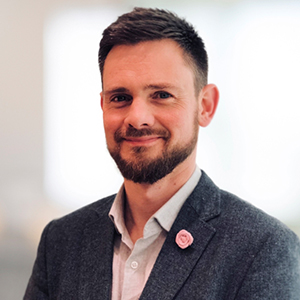 The industry event anyone in secured finance attends now celebrates its 77th year. SFNet is set to make the Arizona convention a memorable one. Click below to register.
The industry event anyone in secured finance attends now celebrates its 77th year. SFNet is set to make the Arizona convention a memorable one. Click below to register.

Nick Welch
Director, BDO Consulting Group, LLC
Nick Welch is a director at BDO Consulting Group in Miami. Nick advises lenders, management teams and private equity groups on financial and operational restructuring, mergers and acquisitions and interim management.
Recently, Nick has served in interim CFO, financial advisor and project management officer roles for various mid-market organizations in the US, Europe, and the United Kingdom. Originally from the UK, Nick previously worked for a publicly listed advisory firm in London where he advised clearing banks on debt advisory topics.
Nick has worked in professional services for over 20 years and is a Chartered Accountant (UK). He started his career in audit, tax, and accounting before transitioning to consulting. As a board member of the SFNet, South Florida and TMA NextGen, Atlanta, Nick is active in driving the industry’s community and promoting awareness and education in the southeast U.S.
What is the best professional advice you have been given and how have you implemented it?
I’ve received a lot of excellent professional advice over the years. One of the most important points, in my opinion, is something I read in a famous business book: “Seek first to understand, and then to be understood.”
Whether the audience is a client, colleague, family, or friend, making sure I listen to, and really understand the issue or topic that is being communicated has ensured deeper connections and engagement.
At the heart of all great connections and relationships is the ability to actively listen (not just waiting for your turn to talk) so that what is being said is understood, processed from the other’s point of view, and thoughtfully responded to.
As well as technical ability, I believe that active listening and feedback underpins what it means to be a successful consultant which, really, is a “trusted advisor.”
How do you define a good leader?
It’s important to remember that leaders come in different forms: leaders can be the president of a multinational, multibillion-dollar organization, or the local scout leader. However, both have similar leadership qualities.
To me, a good leader is an enabler of people. That is, somebody who empowers others to perform at their best in alignment to a common goal. A good leader has a clear understanding of objectives and what the result should look like. They are visionary, not just in how goals are best achieved, but in foreseeing obstacles to those goals and helping others to foresee, prepare and overcome those obstacles.
A good leader knows their own strengths and shortcomings, is honest about them and is not distracted by ego in setting out to achieve them. They select and surround themselves with others who possess strengths that they do not.
A leader is objectively firm, but fair, in ensuring that teams operate at and exceed their potential by creating an environment that promotes growth, creativity and development and where team members can become masters of their own destiny while also being held to account for responsibilities and deliverables.
A leader nurtures culture: leads from the front and by example, being the first one to roll up their sleeves when needed and recognizing and rewarding the quality of their teams.
What advice do you normally give to the junior talent you mentor?
When working with, or mentoring, junior teams, I share advice that my mentors have imparted upon me over the years, as well as personal learnings from my own experience. There are many, but three of the most important are:
Always go the extra mile when assigned to a task or project. Once completed, try to think objectively what the purpose is and any additional steps that can be taken to advance it so that the deliverable is more valuable to the recipient. For example, if asked to prepare an information request list, make sure it is tailored to the client’s business and industry.
Don’t be afraid to ask questions, especially if the concept or a task is new or complex.
Review your own work. In the excited sense of accomplishment, it is easy to immediately send out a piece of work to a project leader or client as soon as it is first drafted, but often it may contain typos or other discrepancies. Reviewing your own work from the eyes of the client, or senior team member, usually helps eliminate the majority of these goblins and it will be clear to the recipient that you have spent the time to check your work, or, indeed, if you haven’t!
77th Annual Convention
 The industry event anyone in secured finance attends now celebrates its 77th year. SFNet is set to make the Arizona convention a memorable one. Click below to register.
The industry event anyone in secured finance attends now celebrates its 77th year. SFNet is set to make the Arizona convention a memorable one. Click below to register.
